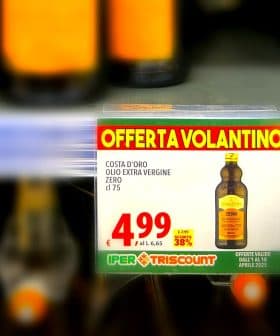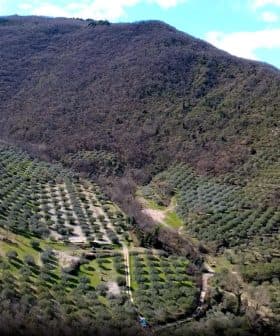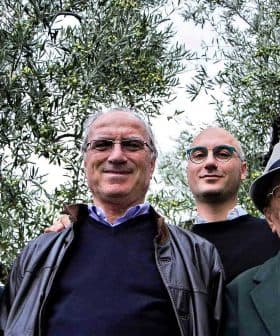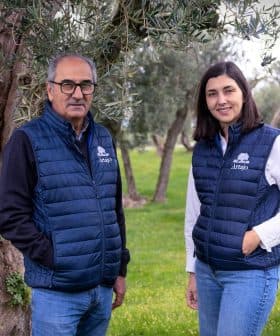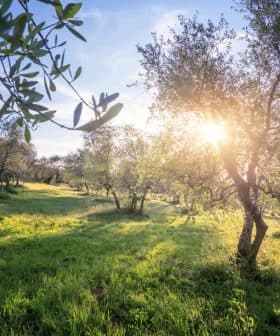Japanese Olive Growers Strike Gold at NYIOOC Competition
A Japanese community's olive oil wins top award at NYIOOC and showcases the success of a collaborative effort to revitalize the region's agriculture.
 YamamotoClub buys olives from 87 local farmers to produce its award-winning extra virgin olive oil. (Photo: YamamotoClub)
YamamotoClub buys olives from 87 local farmers to produce its award-winning extra virgin olive oil. (Photo: YamamotoClub) A local community of Japanese olive growers has won an award at the 2025 NYIOOC World Olive Oil Competition for their Aki no Shima no MI extra virgin olive oil, which comes from the Seto Inland Sea. The success of the olive oil is attributed to a collaborative effort between citizens, businesses, and local institutions, with a focus on organic practices and community engagement.
A local community of Japanese olive growers is celebrating its second award at the 2025 NYIOOC World Olive Oil Competition.
The Aki no Shima no MI extra virgin olive oil comes from the picturesque coast of the Seto Inland Sea. Its name could roughly be translated as “the Autumn fruit of the Island.”
The region is famous for a climate closely resembling the Mediterranean.
Working alongside the local government, we started the Aki no Shima no Mi project to address the issue of neglected farmland and help restore vitality to the coastal regions of the islands.
More than a company product, the Aki no Shima no MI extra virgin olive oil is the fruit of a broad communal project.
“The story began in 2008, when the YamamotoClub company was established to bring abandoned farmland back to life and breathe new energy into the local community,” Akihiro Hamada, president at YamamotoClub, told Olive Oil Times.
“The founder, who started domestic and overseas businesses from scratch, was deeply concerned about the deterioration of his hometown area around Kure and Etajima,” Hamada said. “He wrestled with what kind of business activity could contribute to the local community and preserve the satoyama, the rural landscape. YamamotoClub was born out of this struggle.”
See Also:Producer Profiles“Working alongside the local government, we started the Aki no Shima no Mi project to address the issue of neglected farmland and help restore vitality to the coastal regions of the islands,” he added.
According to the company, the success of its extra virgin olive oil is entirely due to the close collaboration between citizens, businesses and local institutions.
Farmers grow olives and contribute to regional agriculture, while the company purchases the harvested fruit and handles its processing and distribution.
They focus on organic, chemical-free practices that produce quality products for sale in shops, online and restaurants.
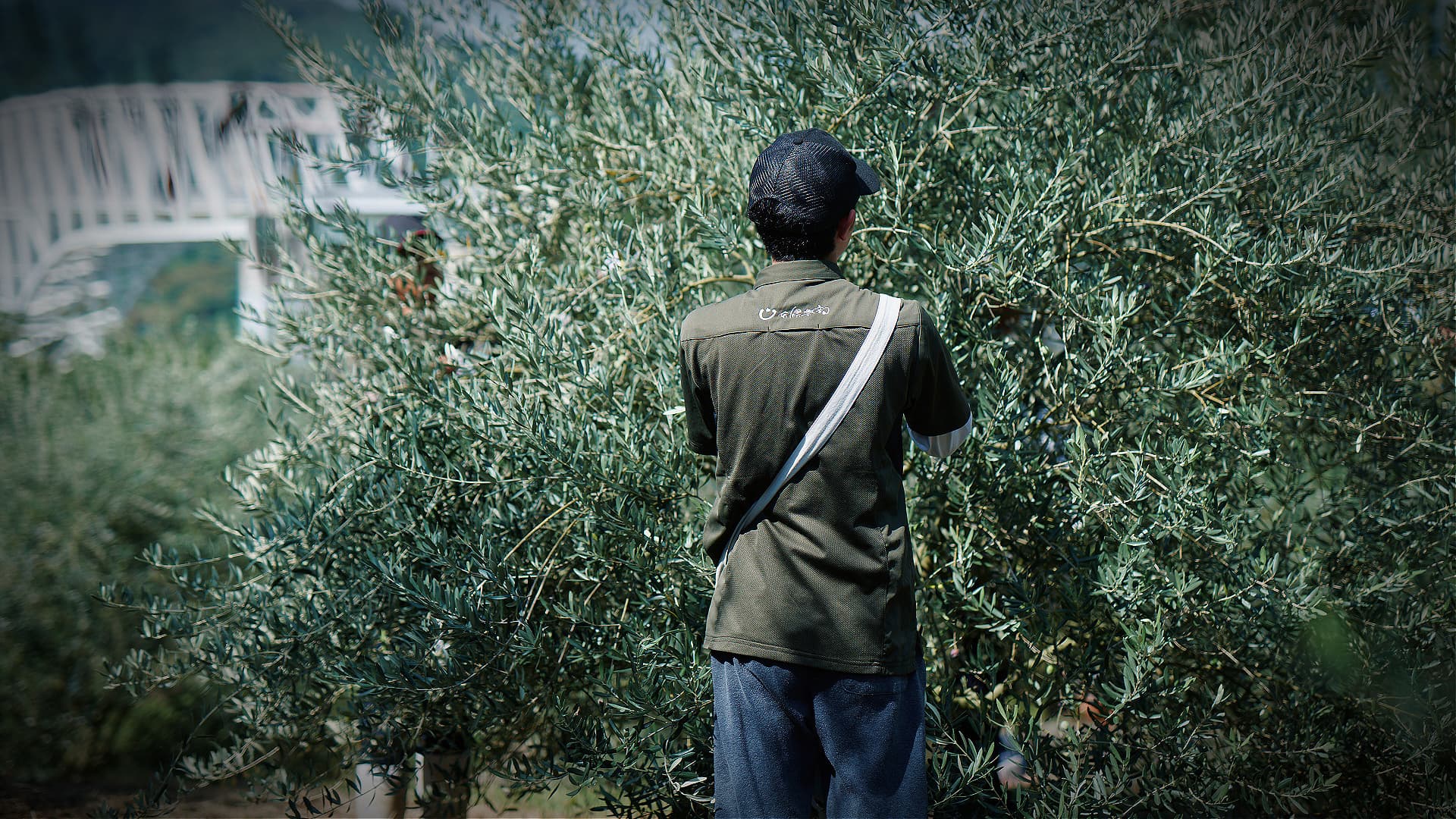
YamamotoClub focuses on organic agricultural practices and preventing farmland from being abandoned. (Photo: YamamtoClub)
The local administration facilitates this process by distributing seedlings, organizing training sessions and supporting promotional initiatives.
They also establish model farms and encourage community engagement through educational and development programs.
“We can see how the project is expanding. In the last season, we purchased olives from 87 small producers, way more than the 63 of the year before,” Hamada said.
The company produced its first olive oil in 2014.
“The most significant change since then is the increasing yields as more farmers get involved and the trees we planted grow,” Hamada said.
“Our olive groves are different from those overseas, as we have many small ones,” he added. “Local farmers also participate in production. They help with small tasks like removing stems, so I believe that effort is reflected in the taste.”
“We are proud to work with local farmers and that the world acknowledges the quality of our work,” Hamada continued.
Since 2019, YamamotoClub has entered its oil into olive oil quality contests, yielding multiple awards, including a Gold Award at the 2020 NYIOOC.
“We are so proud of the work we have done with the local farmers and the governments of Etajima and Kure,” Hamada said.
The farmers involved in the project currently grow a broad variety of many well-known olive tree cultivars over a surface exceeding 12 hectares, home to more than 2,500 trees.
“We grow varieties such as Manzanillo, Lucca, Mission. There are also several Italian ones, such as Leccino, Maurino, Pendolino, Coratina, Leccio del Corno and more,” Hamada said.
The company owns an olive oil mill at the Etajima Olive Factory and introduced a state-of-the-art olive oil extraction system from Italy in 2015.
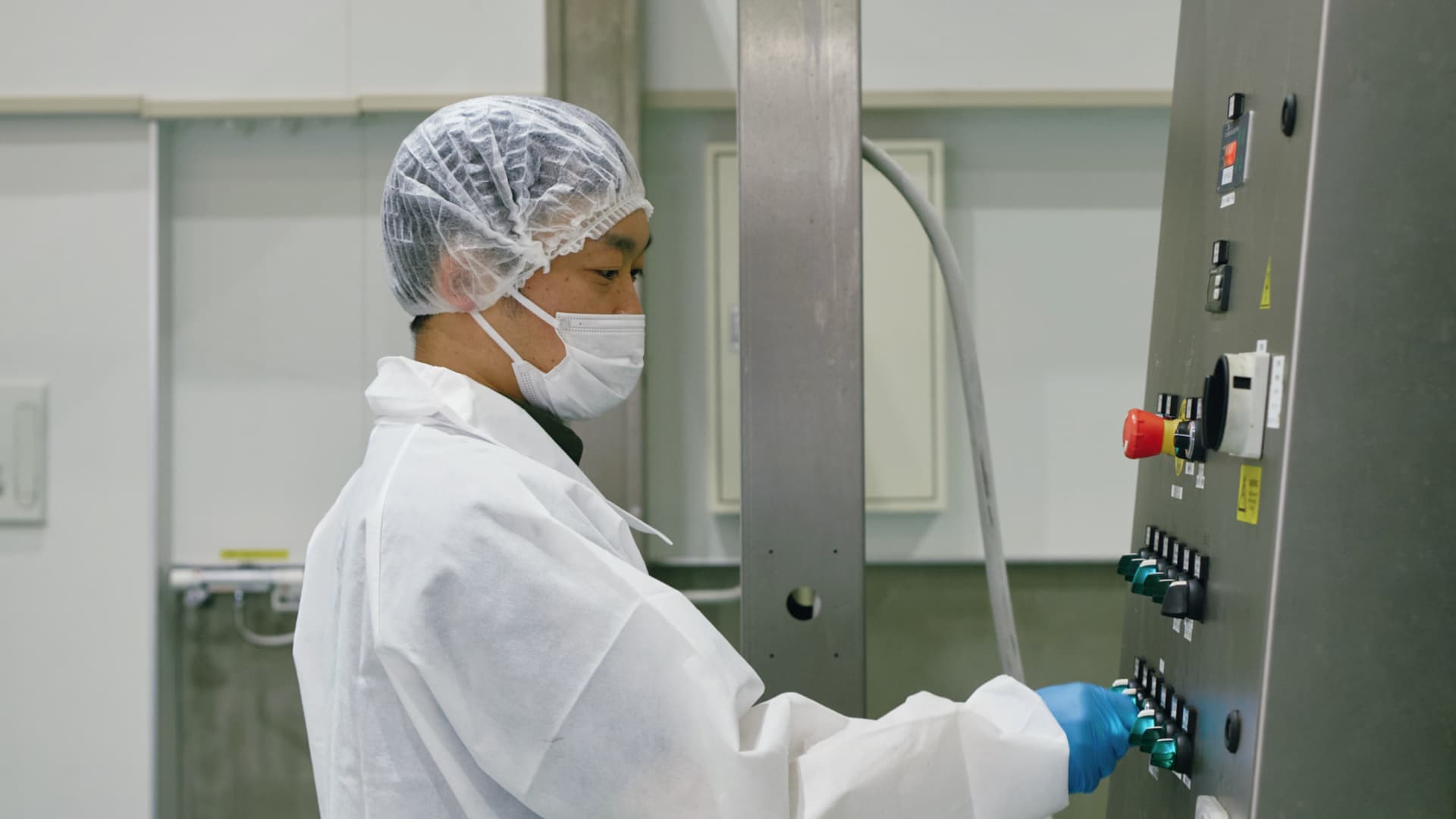
State-of-the-art milling equipment helped the Japanese community producer earn a debut World Competition award. (Photo: YamamotoClub)
“It’s a separate-type system, with individual machines for each step: washer, crusher, malaxer, decanter and separator. After separation, the oil passes through ten filter sheets for finishing,” Hamada said.
“To avoid off-flavors from leftover pomace in the machinery, we disassemble and clean the machines on the same day as pressing. On days with heavy harvests, work may continue until 4 a.m.,” he added.
According to the company, the early harvest is a crucial aspect of its success, which usually concludes before the end of October.
“We do not have special methods, but we go to our olive trees with our hands, without using machines to harvest. We use special care and traditional methods to gather the fruits,” Hamada said.
“Our key practice is meticulous fruit selection. Removing defective fruits, stems, leaves
and branches by hand,” he added.
The company also noted that it only buys freshly harvested, rigorously sorted olives.
Other practices include using oyster shells in the field, as they can improve soil quality.
“Once they are mixed in the soil, the crushed shells remain stable for many years; that means we do not need to add them every year,” he added.
The main benefit of using shells is that they prevent root rot and improve drainage and soil quality.
“Since the beginning, we have grown olives organically, no pesticides and the most minimal chemical fertilization. By using oyster shells or cow manure, we also help other businesses dispose of byproducts sustainably,” Hamada said.
Pests are among the most significant challenges cited by local growers.
“There is a pest called the olive weevil, which causes trees to wither and die,” Hamada explained.
The Japanese olive weevil is an invasive beetle species typical of East Asia. It feeds at night on the leaves of many different plants, including olives, impacting photosynthesis. Its larvae can damage the roots of trees, affecting their resilience.
“The other challenge is the yield fluctuation that results in some years with a good harvest and years with a poor one,” Hamada said.
“Things were going well in 2021, but then in 2022, the weevil made the yields drop. We recovered the year after, but again, in 2024, we saw volumes drop. This on-and-off pattern has become a big concern in recent years,” Hamada said.
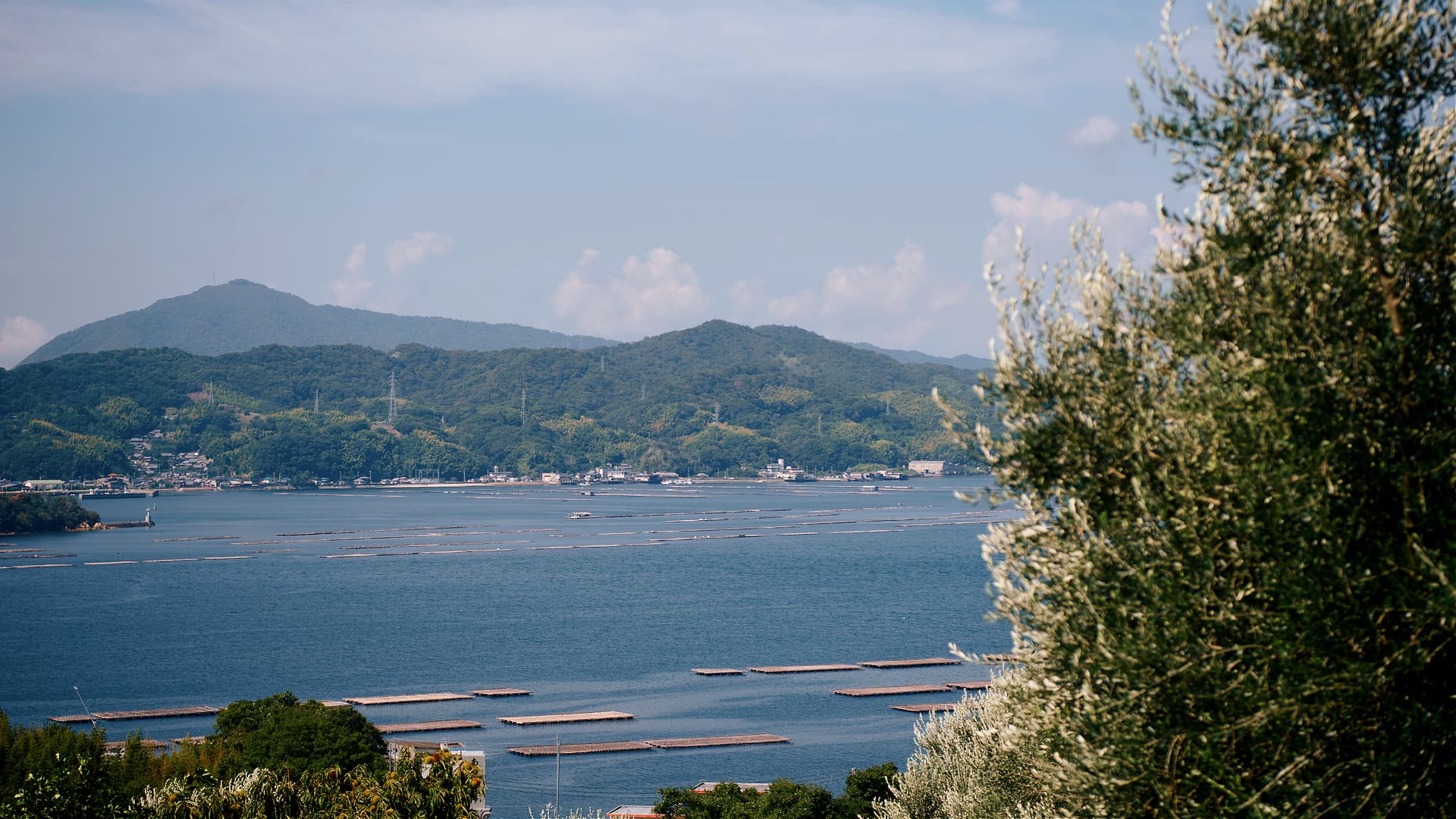
Pests and the natural alternate bearing cycle of the olive tree are among the main challenges facing the Japanese community producer. (Photo: YamamotoClub)
The company stressed how the alternating bearing nature of olives creates production instability.
“We are investing in this, enhancing our agricultural techniques, the pruning and all that can help mitigate this fluctuation,” Hamada noted.
There are also concerns regarding future olive oil production due to the aging population of local farmers.
Still, numbers are growing. “In 2023, we pressed 1,287 liters of olive oil, which sold out. It was a record. The previous one was 896 liters sold,” Hamada said.
“If that growth happens, it is because there is a growing awareness in consumers, and people are now recognizing the special flavors of quality extra virgin olive oil,” he added.
In the last 15 years, olive oil consumption in Japan has doubled its volumes, from 30,000 to 60,000 metric tons.
“However, Japan is not a member of the International Olive Council, so international quality standards for extra virgin olive oil are not enforced domestically,” Hamada said.
“Many products labeled as extra virgin do not meet those standards, limiting consumers’ access to authentic olive oil,” he added.
The company offers tastings at its stores and events. “Customers often say that they are tasting something completely different from what they know,” Hamada said.
“Chefs, on the other hand, tend to understand extra virgin olive oil well. Many of our restaurant and hotel clients contacted us specifically because they were looking for high-quality domestic oil. Most of these establishments target high-end, affluent customers,” he added.
It is never easy to predict what will happen in the next few months of the olive season.
“Recent high temperatures have had some impact, but not a major one. The bigger issue has been pest damage up to this point,” Hamada said.
Some worries in the region come from the turmoil in international markets triggered by the new tariff policy introduced by President Donald J. Trump’s administration in the United States.
Exports from Japan to the U.S. were initially subjected to a 24 percent tariff, which was later paused for 90 days at the start of April. However, a baseline ten percent tariff remains in place.
“That is a big issue. We may not be able to export with such higher tariffs,” Hamada said.
“If confirmed, the tariffs would deal a serious blow, sending olive oil there could become impossible, a very difficult situation indeed,” he concluded.
Share this article


